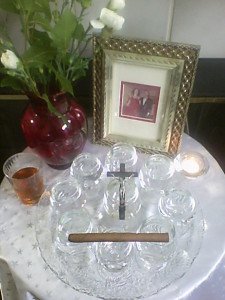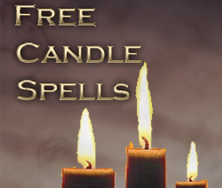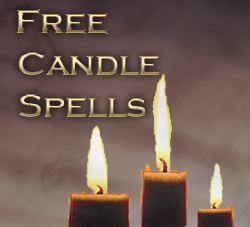Fall arrived a few weeks ago, but with all the weather changes, some weeks one would question if it was a trick Nature was playing on you. One day it is warm, the next breezy. I decide it is furniture moving time. It is time to move my Eguns altar and catch the dust bunnies under the cabinet. Looking at it makes me wonder if anyone else has an altar to their ancestors. Some probably do not have a clue that instinctively, they are creating this sacred, but little recognized space. Many have relative’s photos on the fireplace mantel or on a sidebar hutch in the formal dining room. Little do they know that this is the ancestor altar in its rudimentary aspects.
In the West African traditions of Yoruba, of which Santeria is based upon, a devotee sets up an altar for their ancestors in the family lineage. This is done as a matter of respect for those who, if they had not met one another, you might not have been born. They are at rest, looking down on their protégé and guiding them by communicating messages in dreams, song lyrics, billboards – you name it – to assist in decision making for their living grandchildren. It is with their help that we get through difficult times and it is a theme in African based religious beliefs what was represented in movies like “Soul Food”, when Vanessa Williams’ character’s family places a dish set at the head of the table for her mother, who had passed. It is common in many households with old Southern lineage connections to set a plate and glass at the empty chair at the head of the table, as a way to honor a guest. It is a way to invite a loved one who has passed to ‘come on down’ and enjoy the festivities. It is also a portal for those who are living to recant events, amusements and stories of those that have passed to the younger generation, who might have come too late to meet “Granny’.
The belief that we all have the ability to communicate with our ancestors, whether it be a memory of knowledge or tender moment remembered or a longing to see them again. How many times have you heard that someone you knew spoke of a certain scent like perfume or after shave, in their presence when your friend was going through a difficult time? How many times have you read about people who have heard footsteps or have been awakened by their dead mother’s voice calling to them in their dreams? The ones who have passed over get to see the World through a one-way mirror; they can see us but we cannot see them. It is through dreams, scent impressions and article movement that they can communicate with us.
In many homes that practice various African based beliefs, the ancestor altar has seven or nine glasses of water, each named for relatives known and unknown. Other items accompany the cool water, like framed photos of those older generations, favorite cigarettes, perfume, candies, gum and even a trinket or two. Never are you to place a photo of a living relative on the altar; to do so would invite their demise. These faded and dated images are strictly of the elders of the family. Most devotees add flowers, usually white, and also white candles, whether they are the large 7-day vigil candles in glass or tea lights meant to stay lit only a few hours. A crucifix is usually balanced on the center glass or stands direct center in the back of the table.
These altars are placed in the quieter areas of the home as the elders don’t want a lot of ‘ruckus’. The spirit of the Eguns (a shorter name for Egungun) are content with a corner that sees no action or is not near a busy hallway.
Water is changed once a week, usually on Fridays, Sundays or Mondays and sometimes a cup of black coffee and a pastry is added to the table for a day or so, so that the spirits can enjoy the treat. Offerings of food on chipped or cracked plates are given during certain celebrations and times of the year such as birthdays and holidays.
If nine glasses are a bit much for a novice ancestor altar builder, just one stemmed glass full of water changed daily will do, making sure you toss the old water out on the lawn or in a shrub outside the home and not down the drain. Filling the glass with tap water is fine and any food offering can be placed in a paper bag and immediately taken to the trashcan. Spruce up your tiny altar with one rose in a bud vase. Any offerings of beauty and comfort of this life will be appreciated and noticed by your favorite Great Aunt Esther or Grandpapa Johann. Ancestor altars cross over ethnic lines and there is no variation to the basic altar set up. You might want to ‘change up’ the food and sweets offerings, depending on your ethnic background.
The ancestor altar is the place to go to meditate or ask for guidance when one is perplexed with a decision or is having difficulties and needs an elder to advise them. Your time before the candle and the glasses will show respect to them and will also indicate thankfulness for their being around to assist you in times of trouble. You will leave this spiritual place with more ease and determination as your ancestors bolster your resolve and open the doors to your success.










